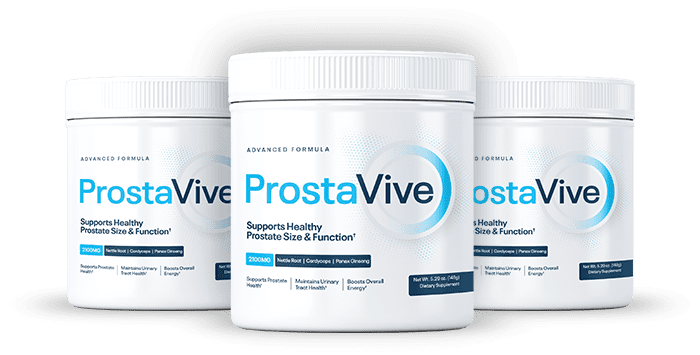What are the roles of vitamins in the body?
Vitamins play a crucial role in our body’s functioning, and their importance cannot be overstated. They are essential for energy production, immune function, growth, and development. Vitamins also help regulate metabolism, maintain healthy skin, hair, and eyes, and support brain function. Additionally, they help convert food into energy, build and repair tissues, and produce red blood cells. Without sufficient vitamins, our bodies become vulnerable to various health problems, such as fatigue, weakness, and impaired immune function. Understanding the roles of vitamins in the body is vital for maintaining optimal health and well-being.

What are the roles of vitamins in the body?
Importance of Vitamins in Maintaining Overall Health
Vitamins are essential nutrients that play a crucial role in maintaining overall health and well-being. They are organic compounds that our bodies need in small amounts to function properly. While vitamins do not provide energy like carbohydrates, proteins, and fats do, they are vital for various bodily functions, such as metabolism, immune system support, and cell growth.
One of the primary roles of vitamins is to act as coenzymes, which are molecules that help enzymes carry out chemical reactions in the body. Enzymes are proteins that facilitate biochemical reactions, and without vitamins to assist them, these reactions would not occur efficiently. For example, vitamin B6 is a coenzyme that helps convert food into energy, while vitamin C is essential for collagen synthesis, which is crucial for skin health and wound healing.
Vitamins also play a significant role in supporting the immune system. Vitamin C, for instance, is known for its immune-boosting properties and is often recommended to help prevent and treat colds. Vitamin D is another essential nutrient for immune function, as it helps regulate the immune response and reduce inflammation. Without an adequate intake of vitamins, our immune systems may become compromised, making us more susceptible to infections and illnesses.
In addition to supporting metabolism and immune function, vitamins are also essential for cell growth and repair. Vitamin A, for example, is crucial for maintaining healthy vision and skin, as well as supporting the growth and development of cells. Vitamin E is a powerful antioxidant that helps protect cells from damage caused by free radicals, which can contribute to aging and disease. Without these vitamins, our bodies would struggle to repair damaged tissues and maintain optimal health.
It is important to note that each vitamin plays a unique role in the body, and a deficiency in any one of them can lead to various health problems. For example, a lack of vitamin D can result in weakened bones and an increased risk of fractures, while a deficiency in vitamin B12 can lead to fatigue, weakness, and nerve damage. Therefore, it is essential to consume a balanced diet rich in a variety of vitamins to ensure that our bodies have all the nutrients they need to function properly.
While it is possible to get vitamins from food sources, such as fruits, vegetables, whole grains, and lean proteins, some people may need to supplement their diets with vitamins to meet their nutritional needs. This is especially true for individuals with certain medical conditions, dietary restrictions, or limited access to fresh, nutrient-dense foods. However, it is essential to consult with a healthcare provider before starting any vitamin supplements to ensure that they are safe and appropriate for your individual needs.
In conclusion, vitamins play a vital role in maintaining overall health and well-being by supporting metabolism, immune function, and cell growth. Each vitamin has a unique function in the body, and a deficiency in any one of them can lead to various health problems. Therefore, it is essential to consume a balanced diet rich in a variety of vitamins to ensure that our bodies have all the nutrients they need to function properly. If necessary, supplementing with vitamins may be beneficial, but it is crucial to consult with a healthcare provider before doing so. By prioritizing our vitamin intake, we can support our bodies in staying healthy and thriving.
Specific Roles of Different Vitamins in the Body
Vitamins are essential nutrients that play a crucial role in maintaining overall health and well-being. Each vitamin has its own specific function in the body, and a deficiency in any one of them can lead to various health problems. In this article, we will explore the specific roles of different vitamins in the body and why they are so important for our health.
Let’s start with vitamin A, which is known for its role in maintaining healthy vision. Vitamin A is essential for the proper functioning of the retina, the part of the eye that allows us to see in low light conditions. It also plays a key role in supporting the immune system and promoting healthy skin. Foods rich in vitamin A include carrots, sweet potatoes, and spinach.
Moving on to vitamin C, this vitamin is well-known for its immune-boosting properties. Vitamin C is a powerful antioxidant that helps protect cells from damage caused by free radicals. It also plays a key role in collagen production, which is essential for healthy skin, hair, and nails. Citrus fruits, strawberries, and bell peppers are all excellent sources of vitamin C.
Vitamin D is another important nutrient that plays a crucial role in maintaining strong and healthy bones. Vitamin D helps the body absorb calcium, which is essential for bone health. It also plays a role in supporting the immune system and regulating mood. Sunlight is a natural source of vitamin D, but you can also find it in foods like fatty fish, eggs, and fortified dairy products.
Next up is vitamin E, which is a powerful antioxidant that helps protect cells from damage. Vitamin E also plays a role in supporting the immune system and promoting healthy skin. Nuts, seeds, and vegetable oils are all good sources of vitamin E.
Moving on to vitamin K, this vitamin is essential for blood clotting and bone health. Vitamin K helps the body produce proteins that are necessary for blood clotting, which is important for wound healing. It also plays a role in bone metabolism and helps maintain strong and healthy bones. Leafy green vegetables, such as kale and spinach, are excellent sources of vitamin K.
Finally, we have the B vitamins, which include B1 (thiamine), B2 (riboflavin), B3 (niacin), B5 (pantothenic acid), B6 (pyridoxine), B7 (biotin), B9 (folate), and B12 (cobalamin). The B vitamins play a variety of roles in the body, including energy production, metabolism, and nerve function. They also play a key role in supporting the immune system and promoting healthy skin, hair, and nails. Foods rich in B vitamins include whole grains, meat, poultry, fish, eggs, and dairy products.
In conclusion, vitamins play a crucial role in maintaining overall health and well-being. Each vitamin has its own specific function in the body, and a deficiency in any one of them can lead to various health problems. By eating a balanced diet that includes a variety of fruits, vegetables, whole grains, and lean proteins, you can ensure that you are getting all the vitamins your body needs to stay healthy. So next time you sit down to eat a meal, remember to include a variety of nutrient-rich foods to support your body’s vitamin needs.
Impact of Vitamin Deficiencies on Health and Well-being
Vitamins play a crucial role in maintaining our overall health and well-being. They are essential nutrients that our bodies need in order to function properly. Without an adequate intake of vitamins, we can experience a range of health issues that can impact our quality of life.
One of the most common consequences of vitamin deficiencies is a weakened immune system. Vitamins such as vitamin C, vitamin D, and vitamin E are all important for supporting our immune function. Without enough of these vitamins, our bodies may struggle to fight off infections and illnesses, leaving us more susceptible to getting sick.
In addition to immune support, vitamins also play a key role in maintaining our energy levels. B vitamins, in particular, are important for converting the food we eat into energy that our bodies can use. Without enough B vitamins, we may feel fatigued and sluggish, making it difficult to get through our daily activities.
Vitamins also play a role in supporting our mental health. For example, vitamin B12 is important for maintaining healthy nerve cells and can help prevent mood disorders such as depression. Vitamin D is another important nutrient for mental health, as it has been linked to a lower risk of developing depression and anxiety.
When we don’t get enough vitamins in our diet, we can experience a range of symptoms that can impact our overall well-being. For example, a deficiency in vitamin A can lead to night blindness and dry skin, while a deficiency in vitamin K can result in excessive bleeding and bruising. These symptoms can be uncomfortable and even dangerous if left untreated.
In some cases, vitamin deficiencies can lead to more serious health conditions. For example, a lack of vitamin D can result in weakened bones and an increased risk of osteoporosis. Vitamin B12 deficiency can lead to nerve damage and anemia. These conditions can have a significant impact on our quality of life and may require medical intervention to treat.
It’s important to remember that vitamins work together in complex ways to support our overall health. For example, vitamin C helps the body absorb iron, while vitamin D helps the body absorb calcium. When we have a deficiency in one vitamin, it can impact the absorption and utilization of other vitamins, creating a domino effect that can lead to further health issues.
In conclusion, vitamins play a crucial role in maintaining our health and well-being. They support our immune system, energy levels, mental health, and overall bodily functions. When we don’t get enough vitamins in our diet, we can experience a range of symptoms that can impact our quality of life. It’s important to eat a balanced diet rich in vitamins and minerals to ensure that our bodies have the nutrients they need to function properly. If you suspect you may have a vitamin deficiency, it’s important to speak with a healthcare provider to determine the best course of action.





